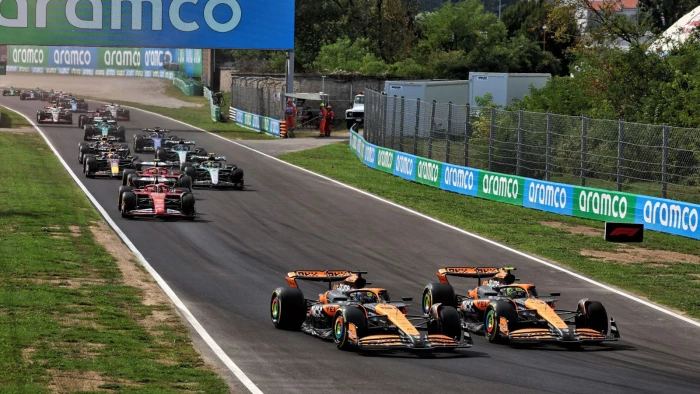Red Bull's financial strategy and the role of Sergio Perez
Red Bull Racing driver Sergio Perez in Italy
Ralf Schumacher has stirred the Formula 1 community by suggesting that Red Bull's decision to retain Sergio Perez was crucial in managing Max Verstappen's huge salary.
Schumacher's comments have come amidst growing speculation that Perez was on the verge of securing a contract extension with the team.
Discussing Red Bull's financial strategy, Schumacher argued that Perez's sponsorship contributions significantly alleviated the financial burden of Verstappen's reputed $55 million-per-year deal.
"As long as Verstappen stays with Red Bull, and that's what I've heard at least once, Red Bull is struggling with a tight budget limit, and Perez brings money with him," former driver and F1 pundit Schumacher stated in an interview with Formel1.
F1 teams have operated under a cost cap in recent years, allowing each team to spend a maximum of $135 million, irrespective of their sponsorship income. This cap aims to level the playing field and ensure financial sustainability across the grid. However, it is important to note that drivers' salaries, such as Verstappen's, are not included within this cap.
Even considering Verstappen's substantial salary, Red Bull's total expenditure would still fall under $200 million, which is significantly lower than the pre-cost cap era. For context, less than four years ago, Red Bull operated with an annual budget close to $400 million and managed to thrive even before Perez joined the team.
Since returning to title-winning success, Red Bull have secured lucrative sponsorship deals with companies like Oracle and ByBit, which have provided substantial financial backing. These sponsorships have ensured that the team remains financially robust, making the notion that Red Bull desperately need Perez's sponsorship money to pay Verstappen seem far-fetched.
However, while Perez's financial contributions might not be indispensable, they are undoubtedly beneficial. Sponsors such as Telcel, Mobil, Claro, and Nescafé contribute a significant sum, enhancing Red Bull's overall budget and financial flexibility. This additional income is certainly welcome, though it is not the sole factor in maintaining the team's competitive edge and financial health.
While Perez's sponsorship income plays a positive role in Red Bull's financial ecosystem, it is not the linchpin holding the team together. Red Bull's success and financial stability are driven by a combination of factors, including strategic sponsorship deals and prudent financial management.
As the F1 calendar progresses, all eyes are now set on the Canadian Grand Prix, scheduled for the weekend of June 7-9. This race, held over 70 laps on the 4.361-kilometre Circuit Gilles-Villeneuve in Montreal, will be the ninth race of the season and promises to be a thrilling spectacle for Formula 1 fans worldwide.

